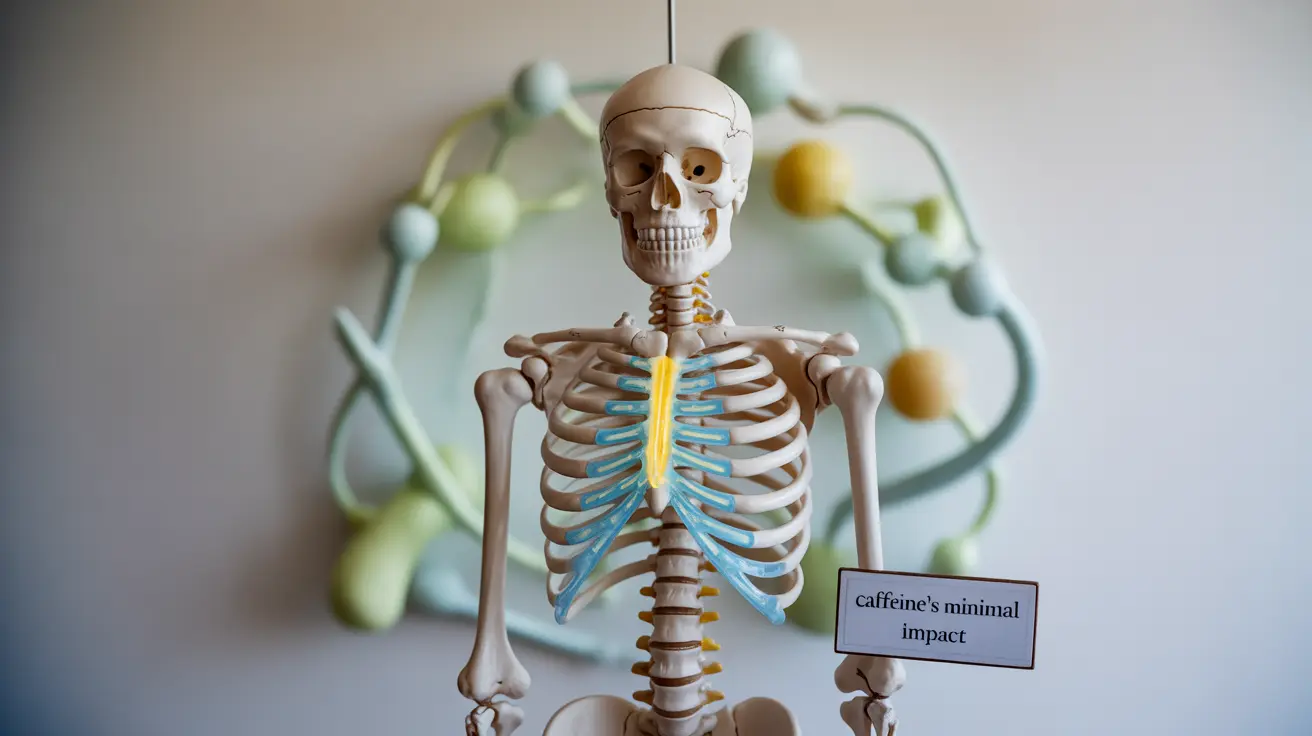For decades, parents and caregivers have warned young people that drinking coffee or consuming caffeine could stunt their growth. This persistent belief has caused concern among adolescents and their families. But what does scientific research actually tell us about the relationship between caffeine consumption and growth?
In this comprehensive guide, we'll examine the evidence behind this common claim and explore how caffeine might affect developing bodies, particularly during crucial growth periods. We'll also provide practical guidelines for safe caffeine consumption among young people.
The Science Behind Caffeine and Growth
Current scientific research shows no direct link between caffeine consumption and stunted growth in children or teenagers. This long-standing myth likely originated from early studies suggesting that caffeine might affect calcium absorption, which is crucial for bone development.
However, modern research indicates that any impact on calcium absorption is minimal and can be offset by consuming adequate calcium through a balanced diet. The small effect caffeine might have on calcium absorption isn't significant enough to influence overall growth or final adult height.
Caffeine's Effects on Bone Health
While caffeine doesn't directly stunt growth, it's important to understand its relationship with bone health:
- Calcium absorption may be slightly decreased
- The effect is temporary and minimal
- Can be counteracted by consuming sufficient calcium
- Most significant in cases of excessive caffeine intake
For optimal bone health during growth periods, adolescents should ensure they're getting enough calcium through dairy products, leafy greens, and fortified foods, regardless of moderate caffeine consumption.
Sleep, Growth, and Caffeine Connection
The most significant way caffeine might indirectly affect growth is through its impact on sleep patterns. Quality sleep is crucial during adolescence because growth hormone is primarily released during deep sleep phases.
How Caffeine Affects Sleep Quality
Caffeine can influence sleep in several ways:
- Delays natural sleep onset
- Reduces total sleep time
- May decrease sleep quality
- Can disrupt natural sleep-wake cycles
To minimize these effects, young people should avoid consuming caffeine in the late afternoon or evening hours.
Safe Caffeine Consumption Guidelines for Youth
The American Academy of Pediatrics recommends the following caffeine limits for young people:
- Children under 12: Should avoid caffeine
- Teenagers (12-18): No more than 100mg daily
- Young adults: Maximum 400mg daily
Parents and teenagers should be aware that caffeine appears in many products beyond coffee, including:
- Energy drinks
- Sodas
- Tea
- Chocolate
- Some ice creams and frozen yogurts
Frequently Asked Questions
Does caffeine consumption affect the growth or final height of children and teenagers?
No, scientific evidence does not support the claim that caffeine directly affects growth or final height. The myth has been debunked by modern research, though moderate consumption is still recommended for young people.
How does caffeine impact calcium absorption and bone health in adolescents?
Caffeine may slightly decrease calcium absorption, but this effect is minimal and temporary. Maintaining adequate calcium intake through a balanced diet can easily offset any minor impact on bone health.
Can drinking coffee before bedtime stunt growth by disrupting sleep in young people?
While coffee before bedtime won't directly stunt growth, it can disrupt sleep patterns, potentially affecting the natural release of growth hormone during deep sleep. It's advisable to avoid caffeine several hours before bedtime.
What is the recommended caffeine limit for children and teenagers to avoid growth or health risks?
Children under 12 should avoid caffeine, while teenagers (12-18) should limit intake to no more than 100mg daily. This helps prevent sleep disruption and other potential health effects.
How can adolescents drink coffee without negatively affecting their bone development and sleep?
Adolescents can safely consume moderate amounts of coffee by following these guidelines: stick to morning consumption, ensure adequate calcium intake, stay within recommended limits, and maintain good sleep habits.




